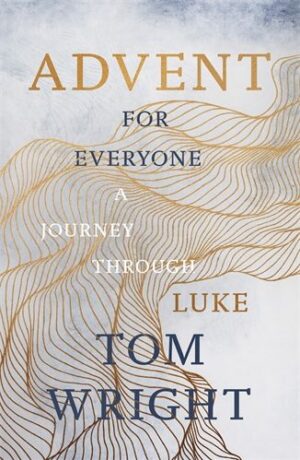



The Parable of the Rich Man and Lazarus: Luke 16.19–31
‘There was once a rich man,’ said Jesus, ‘who was dressed in purple and fine linen, and feasted in splendour every day. 20 A poor man named Lazarus, who was covered with sores, lay outside his gate. 21He longed to feed himself with the scraps that fell from the rich man’s table. Even the dogs came and licked his sores.
‘In due course the poor man died, and was carried by the angels into Abraham’s bosom. The rich man also died, and was buried. 23As he was being tormented in Hades, he looked up and saw Abraham far away, and Lazarus in his bosom.
Father Abraham!” he called out. “Have pity on me! Send Lazarus to dip the tip of his finger in water and cool my tongue! I’m in agony in this fire!”
‘“My child,” replied Abraham, “remember that in your life you received good things, and in the same way Lazarus received evil. Now he is comforted here, and you are tormented. 26Besides that, there is a great chasm standing between us. People who want to cross over from here to you can’t do so, nor can anyone get across from the far side to us.”
‘“Please, then, father,” he said, “send him to my father’s house. 28I’ve got five brothers. Let him tell them about it, so that they don’t come into this torture-chamber.”
‘“They’ve got Moses and the prophets,” replied Abraham. “Let them listen to them.”
No father Abraham,” he replied, “but if someone went to them from the dead, they would repent!
‘“If they don’t listen to Moses and the prophets,” came the reply, “neither would they be convinced, even if someone rose from the dead.”’
We have all seen him. He lies on a pile of newspapers outside a shop doorway, covered with a rough blanket. Perhaps he has a dog with him for safety. People walk past him, or even step over him. He occasionally rattles a few coins in a tin or cup, asking for more. He wasn’t there when I was a boy, but he’s there now, in all our cities, east, west, north and south.
As I see him, I hear voices. It’s his own fault, they say. He’s chosen it. There are agencies to help him. He should go and get a job. If we give him money he’ll only spend it on drink. Stay away – he might be violent. Sometimes, in some places, the police will move him on, exporting the problem somewhere else. But he’ll be back. And even if he isn’t, there are whole societies like that. They camp in tin shacks on the edges of large, rich cities. From the doors of their tiny makeshift shelters you can see the high-rise hotels and office blocks where, if they’re very lucky, one member of the family might work as a cleaner. They have been born into debt, and in debt they will stay, through the fault of someone rich and powerful who signed away their rights, their lives in effect, a generation or two ago, in return for arms, a new presidential palace, a fat Swiss bank account. And even if rich and poor don’t always live side by side so blatantly, the television brings us together.
So we all know Lazarus. He is our neighbour. Some of us may be rich, well dressed and well fed, and walk past him without even noticing; others of us may not be so rich, or so finely clothed and fed, but compared with Lazarus we’re well off. He would be glad to change places with us, and we would be horrified to share his life, even for a day.
Jesus’ story about Lazarus and the unnamed rich man (he’s often called ‘Dives’, because that’s the Latin word for ‘rich’, but in the story he remains anonymous) works at several levels. It is very like a well-known folk tale in the ancient world; Jesus was by no means the first to tell of how wealth and poverty might be reversed in the future life. In fact, stories like this were so well known that we can see how Jesus has changed the pattern that people would expect. In the usual story, when someone asks permission to send a message back to the people who are still alive on earth, the permission is granted. Here, it isn’t; and the sharp ending of the story points beyond itself to all sorts of questions that Jesus’ hearers, and Luke’s readers, were urged to face.
The parable is not primarily a moral tale about riches and poverty – though, in this chapter, it should be heard in that way as well. If that’s all it was, some might say that it was better to let the poor stay poor, since they will have a good time in the future life. That sort of argument has been used too often by the careless rich for us to want anything to do with it. No; there is something more going on here. The story, after all, doesn’t add anything new to the general folk belief about fortunes being reversed in a future life. But if it’s a parable, that means we should take it as picture-language about something that was going on in Jesus’ own work.
The ending gives us a clue: ‘Neither would they be convinced, even if someone rose from the dead.’ Jesus, we recall, has been criticized for welcoming outcasts and sinners; now it appears that what he’s doing is putting into practice in the present world what, it was widely believed, would happen in the future one. ‘On earth as it is in heaven’ remains his watchword. The age to come must be anticipated in the present.
The point is then that the Pharisees, being themselves lovers of money, were behaving towards the people Jesus was welcoming exactly like the rich man was behaving towards Lazarus. And, just like the rich man, the Pharisees, and anyone else tempted to take a similar line, are now urged to change their ways while there is still time. All Jesus is asking them, in fact, is to do what Moses and the prophets would have said. As Luke makes clear through- out, his kingdom-mission is the fulfilment of the whole story of Israel. Anyone who understands the law and the prophets must therefore see that Jesus is bringing them to completion.
If they do not, then not even someone rising from the dead will bring them to their senses. The last sentence of the parable, like a great crashing chord on an organ, contains several different notes. It speaks of the whole hope of Israel for restoration and renewal. It speaks of the poor and outcast being welcomed by Jesus. And it speaks, for Luke’s readers from that day to this, most powerfully of Jesus himself. One day soon, the reader knows, the law and the prophets will all come true in a new way, as Jesus himself rises again, opening the door to God’s new age in which all wrongs will be put right.